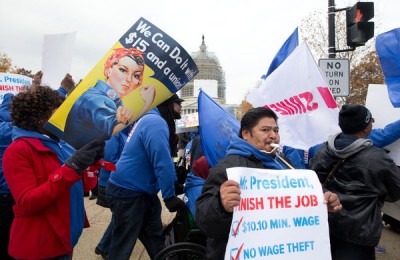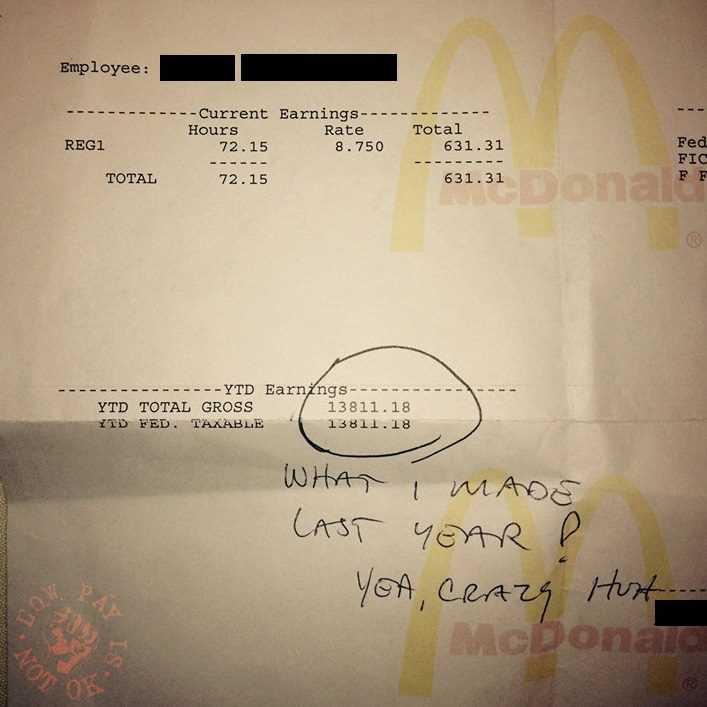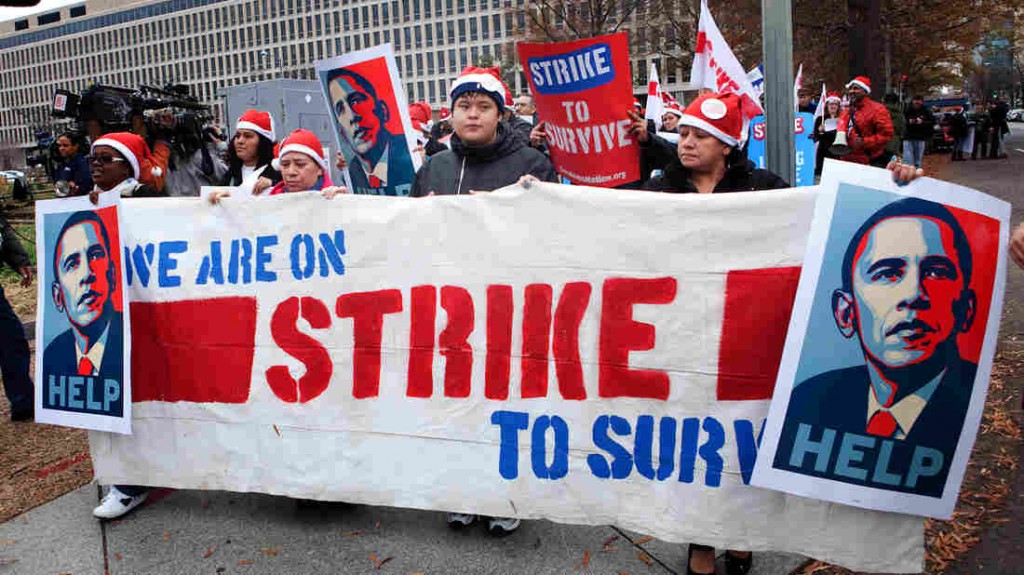This Is What a McDonald’s Worker Makes: A Fight To Raise Minimum Wage

The image below was shared by the Fight for $15, a campaign that targets to raise support for a minimum wage of $15 per hour. This is in comparison to the current figure of a measly $7.25 per hour.

The accompanying text reads, “In case anyone was wondering what full-time wage at McDonald’s are like for a full year, this is it. It’s worth adding that the average cost of a 1-bedroom apartment in the U.S. is $8,993.64 – $11,410.92, or up to 82% of this entire year of work.”
Cost of living is continuously rising and those who are forced to work for minimum wage as their main income source are facing a really tough time.
The pay gap between the CEO and other high flying managers versus the minimum wage earners is unbelievably high and it forces us to think about whether it can really be justified.
After McDonald’s fired previous CEO Don Thompson, they had proceeded to gave him $3 million dollars to “consult” for them for a year. Do the math and you will see that for an average fry cook employed by the same company, it would take him/her 6,631 hours to make what Thompson will be paid for one week of “consulting”.
The company’s longstanding practice of using franchise agreements to limit corporate liability for labor violations at specific stores appears to be crumbling in the face of multiple lawsuits in America. Unions are asking the European Commission to investigate the company’s use of a tax haven in Luxembourg to allegedly deprive various European governments of a billion euros’ worth of tax payments in recent years. And in Brazil, the company may face massive fines stemming from a union lawsuit against the company’s largest franchisee over serious alleged violations of the country’s strong legal protections for workers. [1]
Fortunately, the campaign to raise minimum wage is garnering more support from cities and states, if not at a federal level.
• San Francisco has agreed to raise the minimum wage to $15 an hour by 2018
• Oakland backed a measure to raise it to $12.25.
• Seattle approved a minimum wage hike to $15 by 2021.
• Alaska, Arkansas, Nebraska and South Dakota have all approved proposals to raise the minimum wage in November
The above-mentioned states along with Washington DC and 12 others, have all moved to raise minimum wage in November.
The situation seems to be gradually improving and we can see that exploitative employers are being pushed back.
In the end, what it comes down to, is that if a company is making millions of dollars and earning good profits it needs to ensure that the society, and particularly its own employees, receives a fair proportion of the cash as well.


